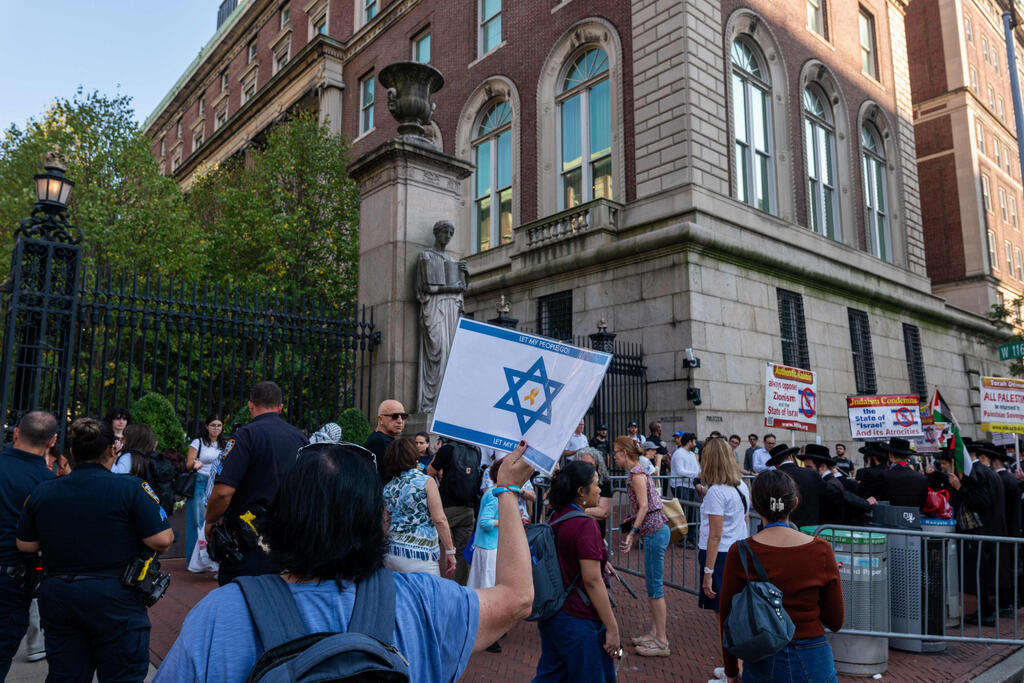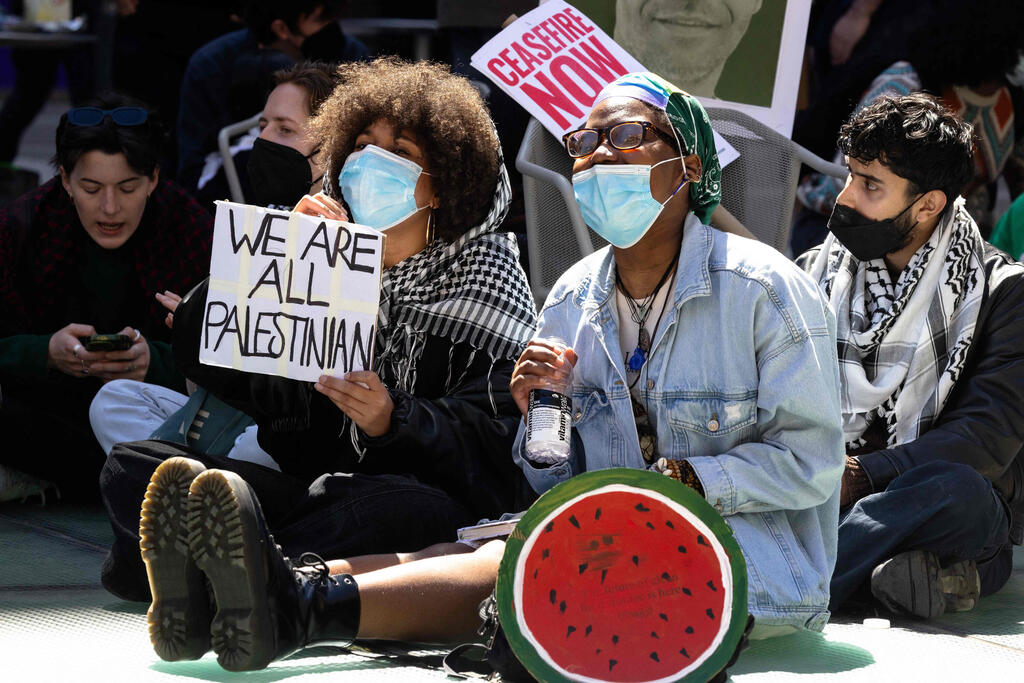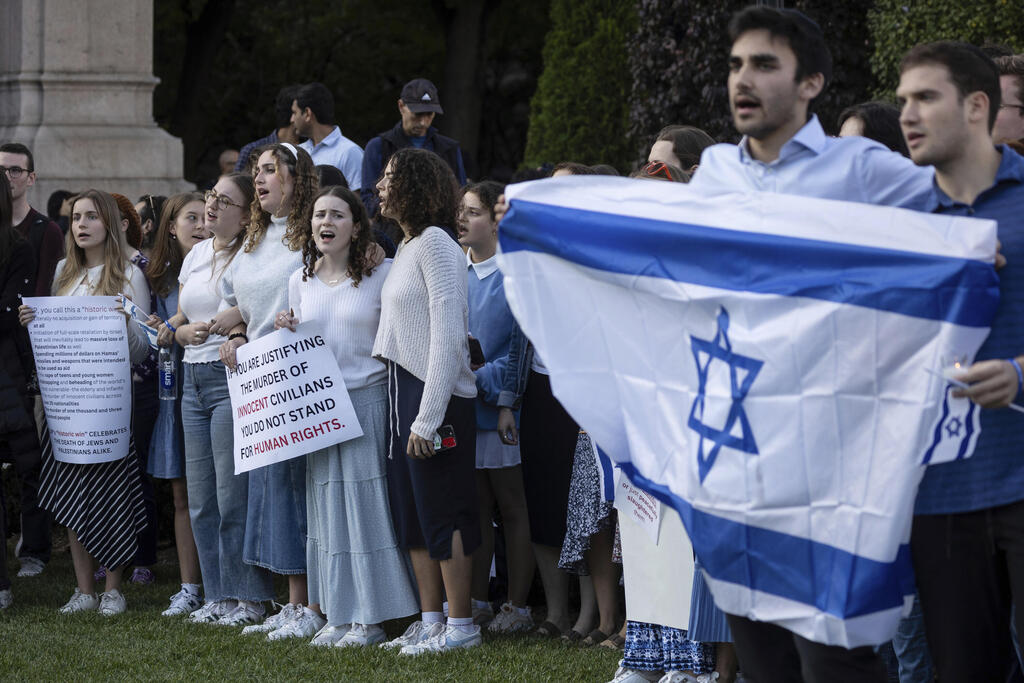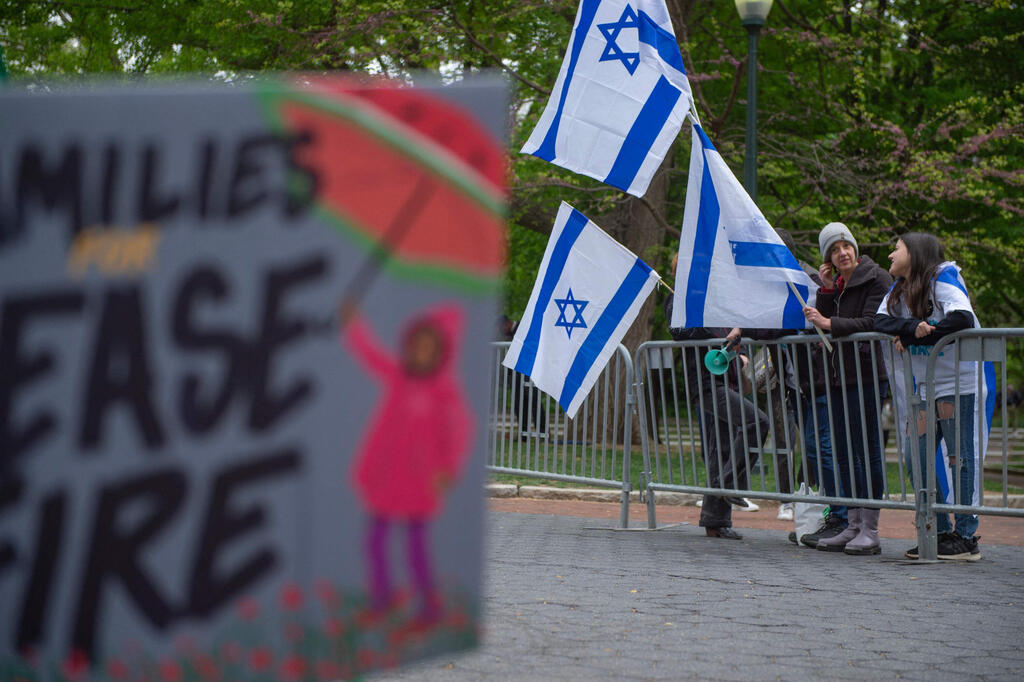Getting your Trinity Audio player ready...
Despite widespread pro-Palestinian protests, resignation of faculty leaders and backlash over the handling of antisemitism, the number of Jewish students at top U.S. universities like Columbia, Harvard and the University of Pennsylvania remains stable, according to Hillel International’s annual report released Friday. The data lists the most popular universities among Jewish students across North America.
Columbia University ranked 13th among private institutions with 1,500 Jewish undergraduates, comprising 23% of its student body, while the University of Pennsylvania was 12th with 1,600 Jewish students, or 16%. Both institutions climbed two spots compared to last year, though overall numbers stayed consistent.
4 View gallery


Pro-Israel demonstration at Columbia University, New York City
(Photo: SPENCER PLATT / GETTY IMAGES NORTH AMERICA / AFP)
Harvard University also rose two places to rank 30th, with 700 Jewish students, making up 10% of its student population.
One of them, Jonathan, who began his studies this past September after serving as a lone soldier in the IDF, said that although he closely followed the campus turmoil, receiving his acceptance letter made everything else irrelevant. “People in the U.S. are willing to sell a kidney to get into schools like Harvard and Columbia—it’s life-changing. No antisemitic professor is going to stop me,” he said.
Boston University retained its position as the top institution for Jewish students, with 4,000 Jewish undergraduates, or 22% of its student body, dropping slightly from 23% the previous year. Tulane University came in second with 3,214 students (44%), followed by George Washington University with 3,000 (27%), climbing one spot in the ranking from last year despite several high-profile clashes between protesters this year.
New York University (NYU), a focal point of campus protests over the past year, dropped one spot to fourth place, with 2,895 Jewish undergraduates (10%).
4 View gallery


Anti-Israel demonstration at NYU
(Photo: Michael M. Santiago / GETTY IMAGES NORTH AMERICA / AFP)
Brandeis University, which reported a rise in interest from students seeking a “Jewish stronghold” as a refuge from antisemitism elsewhere, ranked 15th with 1,300 Jewish students, though it has one of the highest percentages at 35%, behind Tulane (44%) and City University of New York (38%).
The University of California, Los Angeles (UCLA), which also made headlines this year due to violent clashes between pro-Palestinian and pro-Israeli protesters, ranks 26th among public universities popular with Jewish students. UCLA is home to 2,500 Jewish undergraduates, representing 9% of its student body. This marks a rise from last year’s 29th place ranking, when the percentage stood at 8%.
The top three public universities for Jewish students remain unchanged from last year: The University of Florida leads with 6,500 Jewish undergraduates (19%), followed by Rutgers University in New Jersey with 6,400 (18%) and the University of Central Florida (UCF) with 6,300 (11%).
Hillel International’s annual list evaluates 60 leading academic institutions in North America and also highlights smaller or specifically Jewish schools, such as Yeshiva University, Touro College and the Jewish Theological Seminary (JTS).
Unlike ethnic or racial groups, Jews are considered a religious group in the United States, so universities do not officially collect or publish data on Jewish enrollment.
In addition, the U.S. Supreme Court ruled in June 2023, after decades of debate, that the Constitution does not permit universities to consider race as part of the admissions process, effectively ending affirmative action in higher education in the United States.
In this context, Hillel, the world’s largest Jewish student organization, has filled the gap by publishing its annual list for over a decade. The report includes data on Jewish enrollment at 950 institutions across North America, alongside information on Jewish studies courses and kosher dining options.
For the first time, this year’s rankings also incorporate metrics focused on institutional responses to antisemitism and anti-Zionism. These include whether campuses hosted boycott protests or divestment votes (BDS), faced federal complaints of antisemitism and discrimination or participated in Hillel-led training programs against discrimination. Mental health services for Jewish students were also evaluated.
The report is accompanied by an op-ed from Hillel President Adam Lehman titled “How to Pick a College During a Surge of Antisemitism on Campus.” Lehman advises prospective students and their families to “look beyond the headlines and click-bait rankings and evaluate each campus holistically to help their student find the school that will be best for them, on their Jewish and broader life journeys.”
He adds, “No student should ever be subjected to harassment, discrimination, antisemitism, or hate of any kind. And we will continue to work tirelessly to ensure that university administrations do not allow hostile and discriminatory environments for Jewish students to persist on their campuses.”
Get the Ynetnews app on your smartphone:




